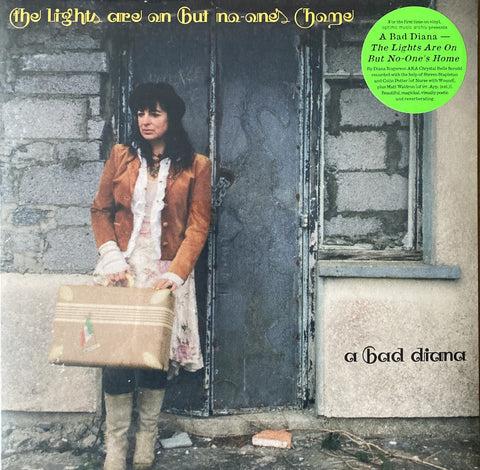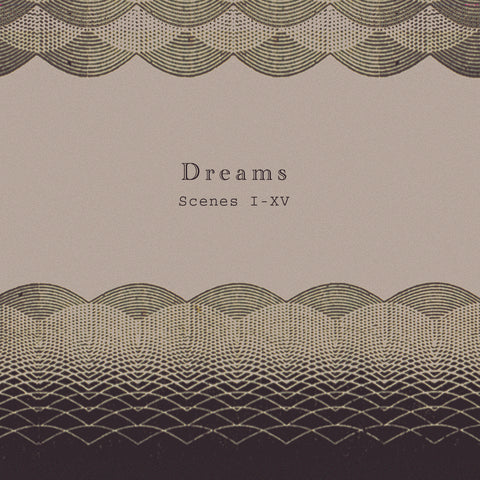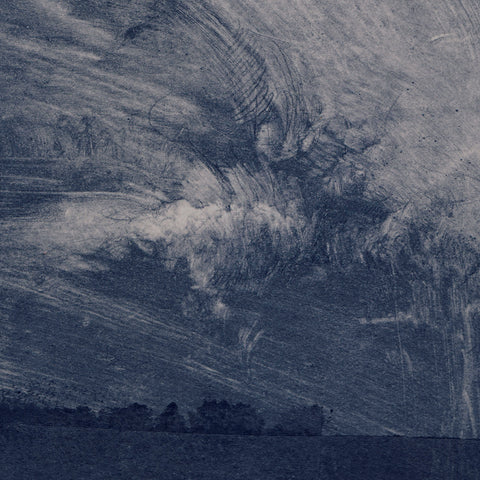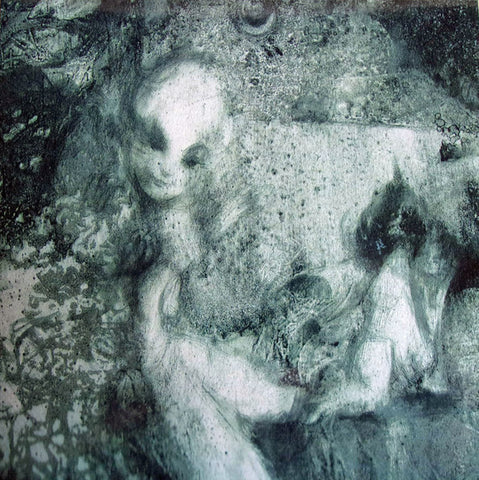
David Jackman 'Herbstsonne' CD **BACK IN STOCK** £11.99
19.06.19 A new work by David Jackman. Beautiful!
Review from Brainwashed : Always enigmatic, the latest work from David Jackman is a single 47 minute piece that, for some reason, has been issued under his own name rather than Organum. I have never been clear as to what determines the name that will go on the record, and this is the first Jackman release since a split 7" (with Organum) in 2005. Additionally, the overall feel of the piece is distinct, but not far removed from the Amen/Sanctus/Omega trilogy from 2006-2007. Deliberately minimalist in arrangement, but with an unquestionable dedication to the finest detail of sounds, it is another work of fascinating beauty by the legendary artist.
Herbstsonne (german for Auutum Sun) is a sparse composition, recorded only using tanpura, piano, organ, and bells, and is performed rather deliberately, with Jackman leaving long, open spaces between the sounds of each instrument. On the whole the piece features recurring themes: the tanpura and organ being used to create expansive tones, with the bells scattered throughout. The piano tends to appear in heavy, loud outbursts of single chords, sometimes jarring in volume but complementing everything else perfectly.
There may not be an immediate sense of complexity to Herbstsonne, but Jackman's arrangement does an amazing job at highlighting the minute details of each instrument. The metallic twang of the tanpura expands into space, blended with the sustained organ sounds. There is little in the way of effects or treatment to the sound; I only hear reverb which may just be part of the actual recording, so there is a distinct purity in sound. Some subtle panning adds some dynamics to the recording, but on its own it still sounds amazing. The same goes for the bells, which echo out beautiful in each and every appearance they make.
I could not help but be reminded of the Amen trilogy in both the simple arrangements and the precise detail in each instrument, but there is a different mood here. That amazing trilogy, while not explicitly religious or spiritual in nature, did have a sensibility rooted in ancient holy music, presented in a very abstract setting. There does not seem to be that same underlying feel here, and is instead one that seems more rooted in nature itself. Autumn sun is a fitting title, because there is a sense of warmth from the tonal passages and the occasional chill of bells or abrupt piano chord that heralds the coming of winter.
With constant Internet speculation that each new release may be his last, I always feel a surge of excitement when a new Organum or David Jackman release is announced, and Herbstsonne did not disappoint. With a casual listen this may seem like a simple piece, but like all of Jackman's work, the attention to detail he works into the recording is apparent with intent listening and makes for some of the most engrossing music I have heard all year. Creaig Dunton
Review by Frans de Waard from Vital Weekly : It's very easy to misunderstand David Jackman. Well, also to understand him, really. I don't ‘get’ pretty much anything of his work, and yet I love it very much. Ever since picking up the first Organum record ('In Extremis') I liked his music and later on, I found there is sometimes a release by Organum and sometimes as David Jackman. The latter seemed to be reserved for more conceptual leanings, such as records filled with machine gun fire. It was all about war, it seemed. As Organum he played some beautiful drone music, made with string instruments, electronics, piano and such like. The confusion comes in with a release like 'Herbstsonne' ('autumn sun'), which sound very much like the work of Organum. It uses tanpura, piano, organ and bells, and that could have been also used on the latest Organum record, 'Raven' (Vital Weekly 1143). Perhaps the whole difference between Organum and David Jackman boils down to the fact that the first may be a band and the second is really a solo work? I have no idea, really. 'Herbstsonne' is one long piece, forty-seven minutes and sounds very spooky. The tanpura drones are in the background, along with, I assume, the organ, and on top, there is the regular bang on the piano and bells. Five times these bangs are louder, like a small cluster of bells and piano tones; the drones continue throughout. It sounds like a funeral march, slow and solemn, a slow march towards the grave, and as such it fits the requiem themed releases of the last years ('Amen', 'Sorow', 'Omega', 'Sanctus' and 'Raven'; all actually under the banner of Organum) and 'Herbstsonne' is no different. Before I already talked about Jackman's advancing age and all of this is perhaps to be seen as a very long farewell soundtrack. That is also one of the big mysteries in the work of David Jackman. I can imagine
people going 'oh it's the bloody same thing over and over again', but I like the sheer consistency of it all. It is the same and yet it is also very much different. This is another piece of very sad music and I love it. (FdW)
Review by Massimo Ricci on toneshift.net :
“The new music involves a lot of repetition; more accurately, near-repetition. It is a quality which I find most elegant. In the visual arts, such formal arrangement would be greeted without a murmur but in music it does seem to cause people some problems; problems which I am afraid I have no interest in solving. That sonic architecture is the piece, every time, and is also the reason why I can use many of the sounds again and again. However, despite the tight palette and the even tighter structures, the pieces have proved very hard to get into their final shape. What looks so easy has been, in fact, the opposite”.
These words by David Jackman are not from last week. They were pronounced in 2007, after Organum’s milestone Amen – second chapter of a trilogy also including Sanctus and Omega – had been dismissed as “pompous” and “limp” in The Wire. But Jackman has never been interested in ineffective changes; the “let’s mess things up a bit” attitude typical of many of today’s artists does not belong to his DNA. In fact, he kept using the same constituents for two additional Organum items, 2010’s Sorow and 2018’s Raven. All of the above represents essential listening for anybody who realises that drones are strictly connected with our innermost recollecting abilities, the data transmission occurring by sheer vibrational momentum rather than mnemonic/intellectual effort. Jackman’s music causes the air’s molecules to shift in a special way, which is going to remain totally obscure to the superficial observer.
What brings Jackman to decide if a given release must be credited to himself – as in this case – or Organum is beyond my knowledge; however, it’s not important in terms of absorption of the message. Herbstsonne (“Autumn Sun”) is scored for tanpura, piano, organ and bells. You guessed it: these are some of the colors used in the aforementioned albums, though their implementation over the course of this 47-minute piece is evidently different. Aside from the acoustic rectitude emerging from Jackman’s instrumental deployment, stark contrasts exist between the hypnotic qualities of the tanpura/organ mix, the sparse tolling of the bells and the abrupt chords hammering at one’s focus: imagine reality trying to restate its authority on the wish of keeping sufferance at a safe distance.
The reiterative structure alters the perception of time while strengthening the belief in unfathomable resonance as the lone principle of eternal transformation. Amidst anthropocentrically illogical theories – conceived by little men to exercise the concept of a “creating entity”, a carpet to sweep the dust of human stupidity beneath – trusting an omni-comprehensive drone to improve one’s extracorporeal characteristics appears too much to ask at this moment.
Jackman doesn’t care. A man of rare and precious statements, he declared in 1988 that the music of Glenn Branca and Rhys Chatham appealed to him (lest you forget, for decades he has been considered a primary exponent of the avant-noise movement). Although the more recent output doesn’t show any trace in that regard, that interest is not surprising. Very few individuals are capable of discerning the harmonic core of a massive clangor, or a motorcycle’s engine; helpful upper partials come to those born in certain perceptive conditions. When a musician manages to distil them from what others would describe as insufferable racket, the expectations are high for those findings to evolve into a kind of peaceful stasis that can still kick someone’s ass. Herbstsonne does exactly that, its sounds eliciting at once non-ritualistic spirituality, unselfish realism, and the consciousness of the afterlife as a necessary growth.
As the matter is recycled, “next life” delusions continue to fuel hopeless existences. Meanwhile, the container of everything reverberates ad infinitum.




